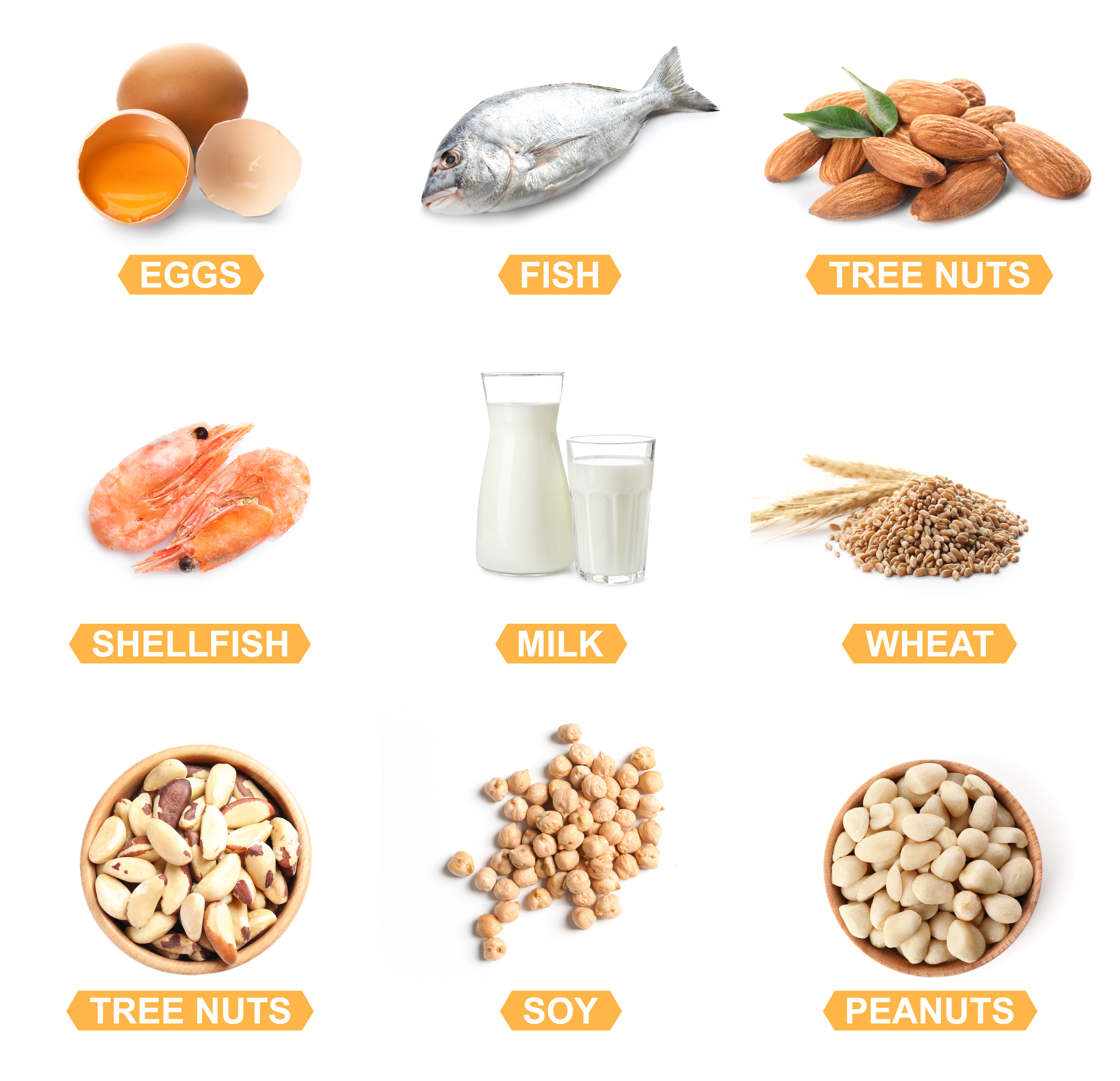
Food Allergies
Food allergies are the immune system response to specific proteins found in certain foods.
When individuals with food allergies consume these allergenic proteins, their immune system identifies them as harmful and releases chemicals, such as histamine, to defend the body. This immune response can lead to various symptoms ranging from mild to severe.
Symptoms of a food allergy can include skin reactions (such as hives or eczema), digestive problems, respiratory issues (such as wheezing or difficulty breathing), and in severe cases, anaphylaxis—a life-threatening reaction that requires immediate medical attention.
It's important for individuals with food allergies to carefully read food labels, communicate their allergies to restaurants and others preparing their food, and carry an epinephrine auto-injector in case of a severe reaction. If someone suspects they have a food allergy, they should consult with a healthcare professional for proper diagnosis and management.
Common Food Allergens
If someone is suspected of having an egg allergy, it is important to consult with a healthcare professional for proper diagnosis and management. In some cases, individuals with egg allergies may need to avoid not only whole eggs but also foods that contain egg ingredients, as well as certain vaccines and medications that may contain egg proteins.
It's important for individuals with fish allergies to avoid consuming fish and be cautious about cross-contamination in food preparation. In some cases, even inhaling cooking vapors or touching surfaces contaminated with fish can trigger allergic reactions. If someone suspects they have a fish allergy, they should consult with a healthcare professional for proper diagnosis and guidance on managing the allergy.
It's important for individuals with a shellfish allergy to avoid consuming shellfish and to be vigilant about checking food labels, as shellfish ingredients can sometimes be hidden in processed foods. In severe cases, people with shellfish allergies may need to carry an epinephrine auto-injector (such as an EpiPen) to quickly treat an allergic reaction.
If you suspect a shellfish allergy, it's advisable to consult with a healthcare professional for proper diagnosis and guidance on managing the allergy.
It's important for individuals with a milk allergy to avoid all sources of milk and its derivatives. In some cases, milk proteins may also be present in processed or packaged foods, so careful reading of ingredient labels is crucial for those with a milk allergy. If someone suspects they have a milk allergy, it's advisable to consult with a healthcare professional for proper diagnosis and management.
This immune response can lead to various symptoms, including skin rash, digestive issues, difficulty breathing, and in severe cases, anaphylaxis. It's important for individuals with a wheat allergy to avoid wheat-containing products and carefully read food labels to prevent accidental exposure. If someone suspects a wheat allergy, they should consult with a healthcare professional for proper diagnosis and guidance on managing the condition.
It's important for individuals with soy allergies to carefully read food labels, as soy is a common ingredient in many processed foods. Additionally, they should be cautious when dining out and inform restaurant staff about their allergy to avoid accidental exposure. If you suspect a soy allergy, it's advisable to consult with a healthcare professional for proper diagnosis and guidance on managing the allergy.
People with peanut allergies need to avoid peanuts and peanut-containing products to prevent allergic reactions. In some cases, individuals may carry an epinephrine auto-injector (such as an EpiPen) to quickly treat severe reactions. It's essential for those with peanut allergies to carefully read food labels and inform others about their condition to ensure they avoid exposure to peanuts.
Unlike celiac disease, which is an autoimmune disorder where the ingestion of gluten leads to damage in the small intestine, gluten sensitivity does not involve an autoimmune response or damage to the intestinal lining. However, people with gluten sensitivity may experience various symptoms after consuming gluten, such as gastrointestinal issues, fatigue, headaches, and joint pain.
It's important to note that gluten sensitivity is distinct from celiac disease, which is a more severe and potentially serious condition. If someone suspects they have an issue with gluten, it's advisable to consult with a healthcare professional for proper diagnosis and guidance on managing their symptoms.

